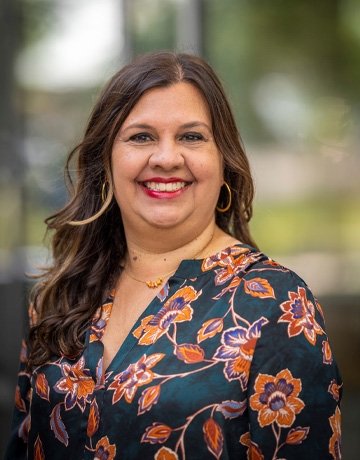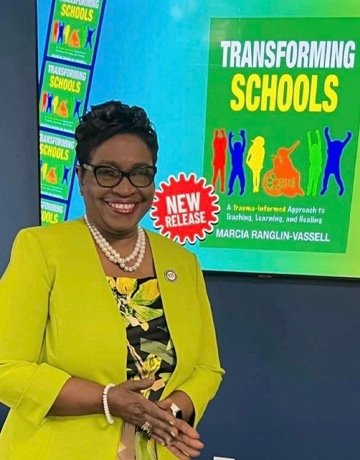Lessons from Cognitive Psych for Studying (Staff Focused), Megan Sumeracki
Intended Audience: Staff
Location: Craig-Lee 112
Decades of cognitive research can inform student learning, both in the classroom and during independent study. However, students are often unaware of the most Effective and efficient ways to study on their own, leading to missed opportunities to leverage highimpact learning strategies. Effective and efficient studying is now more important than ever, with the cost of living rising and the Hope scholarship requiring students to stay on track for graduation. In this session, join Cognitive Psychologist and learning expert Megan Sumeracki (Psychology) to discuss the pitfalls students experience when studying, and the ways we can support them to make more effective and efficient study choices. In particular, the workshop will focus on evidence-based study strategies that are easily applicable with a wide variety of course content and in many different learning situations. Staff members working with students to improve their independent learning/studying.
Assessment for Student Success Utilizing a Human Centered Design Approach (Staff Focused), Christiane Petrin Lambert and Gokul Mandayam
Intended Audience: Staff
Location: Craig-Lee 107/109
Our workshop presents current literature on the psychosocial experiences of students with classroom assessment practices and the impact on student success. We will also provide an interactive discussion and ideation experience with a Human Centered Design Thinking Approach, an evidence-based process for developing solutions to pressing social problems (HCD) (IDEO, 2015; Mandayam et al., 2023). We will present insights from current literature and key findings from a qualitative inquiry about the psychosocial experiences of students while engaging in assessment activities, which research has shown is a critical threshold for persistence or stopping out of college (Brunton & Buckley, 2021; Chapman, 2017; Feldman, 2019; Spagnola & Yagos, 2021). Through HCD, we will ideate approaches to assessment that motivate and foster student success, and address the pressing challenges that faculty face, such as those ushered in with advancements in Artificial Intelligence and blended models of teaching/learning, i.e., in-person and online instruction, etc. The intended audience would be Staff who provide academic support for students and administrators of student success initiatives.
Pedagogical Approaches to Science in Action, Nikki Toorie and Daniel Hewins
Intended Audience: Faculty
Location: Craig-Lee 104
Student connection in the discipline of biology is integral to the learning process. The use of interactive activities both inside and outside of the classroom facilitates the development of student learning strategies and builds students’ confidence to facilitate their educational growth. Through the use of traditional, unconventional and unique interactive strategies, we seek to enhance student engagement in our courses to improve learning outcomes. In this session, we will provide an overview of general strategies to improve student engagement with course material, instructors and peers. Additionally, a series of short interactive activities will be used to exemplify the theme of defining student success as learning.
*The Online Learner: Strategies for their Support and Engagement, Miko Nino
Intended Audience: All
Location: Craig-Lee 105
This workshop will present a research-based rubric that higher education institutions can follow to be ready to better serve online students. This session will cover practical tips for instructors and Staff who work or plan to work with online students. As part of the workshop, participants will complete an action plan that they can implement in their classrooms or administrative offices. In addition, participants will discuss the latest trends in online education and the role that artificial intelligence plays in creating inclusive, effective, and accessible learning environments.
*What It Takes to Be Data-Driven, Sara Phillips
Intended Audience: All
Location: Craig-Lee 101
What does it mean to be data-driven and why is getting there so hard? This presentation will discuss the possibilities and the pitfalls of using data to guide institutional change. This session will highlight where we are data-wise at RIC, what's already been achieved and where we're going, and the limits we face. The goal is to make attendees more familiar with the kinds of data available and how best to use them to address operational and institutional change.
*RIC Center for Excellence in Latinx/Hispanic Social Work Practices: Strategies for Building Community with Latinx Students, Vilna Tejeda, Aswood Bousseau, Joise Garzon, Jayashree Nimmagadda, and Estrellita Moronta
Intended Audience: All
Location: Craig-Lee 103
This interactive workshop focuses on the strategies the Center of Excellence in Latinx Social Work Practice utilizes to build community capacity for Latinx social workers and explore pathways for collaboration across the state and with other schools of social work. This workshop will facilitate a robust dialogue between presenters and participants to review the COE's comprehensive approach, share strategies utilized by RIC-COE and other schools, and explore pathways for collaboration. The COE has a comprehensive approach encompassing multiple strategies to enhance and sustain a pathway for Latinx/Hispanic students to become licensed clinical social workers and Latinx/Hispanic faculty to be social work educators.
*Building Community in the Classroom, Kristen Pepin
Intended Audience: Faculty
Location: Craig-Lee 108
RIC can become a student-ready college by cultivating a sense of community amongst colleagues and within classrooms. In my experiences, students feel more comfortable participating in class dialogues and are more engaged during lessons when they know each other and their instructor. Intentionally designing courses to cultivate a sense of community and help students progress through stages of group development allows students to step out of their comfort zone and take academic risks such as voicing questions, contributing responses, and offering peers constructive feedback. During this interactive workshop participants will authentically experience community building activities from a participant’s perspective. While engaging with peers during the activities, colleagues will become more familiar with each other and hopefully be inspired to attempt community building within their own classrooms.
*Strategies to Enhance Academic Self-Efficacy, R. Scott Lambert
Intended Audience: Faculty
Location: Craig-Lee 106
Implementing self-regulated learning strategies within the classroom has potential to improve a student’s academic self-efficacy and potentially reduce academically related stress, which in turn can facilitate academic persistence. Participants will discuss self-regulation and metacognitive strategies that can be modeled within a classroom, facilitated within workshops, or taught directly to students within a course. Participants will use self-regulated learning theories to develop new or augmented strategies that are appropriate and personalized for their learning environments with the goal to increase academic self-efficacy, reduce stress, and increase perseverance.






